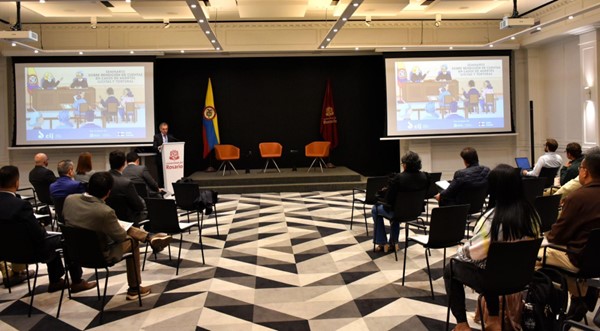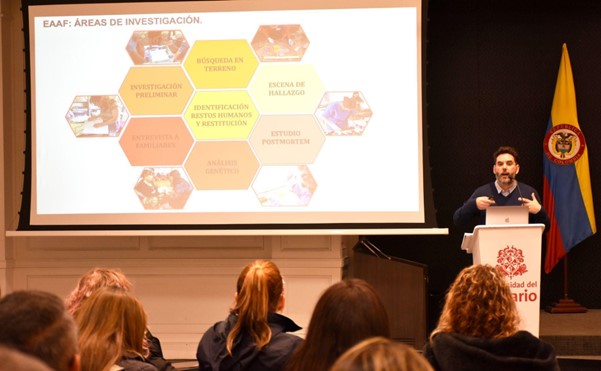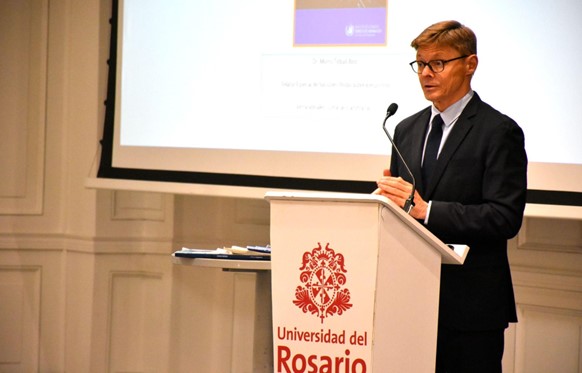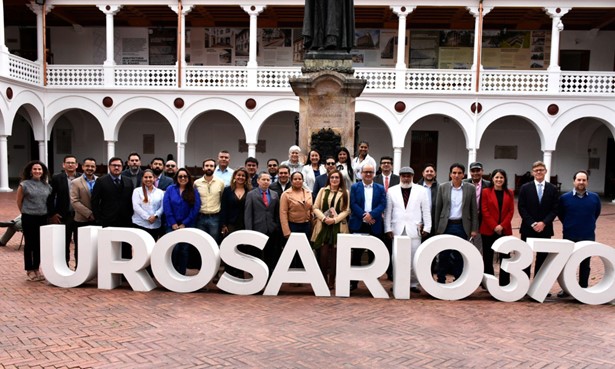From 11 to 15 September 2023, the International Commission of Jurists (ICJ) held three seminars on accountability for unlawful deaths and torture for victims and victim representatives (September 11), judges (September 12 and 13), and prosecutors and investigators (September 14 and 15) in Bogotá, Colombia. The seminars highlighted the importance of ensuring compliance with international standards in addressing impunity.

The workshops were inaugurated by the Secretary General of the ICJ, Santiago Canton, who highlighted the importance of judicial independence in maintaining the democracy that exists today and the democracy that is being lost, especially in some Latin American countries.
The seminars aimed to train participants on international human rights standards that apply to criminal investigations in cases involving unlawful deaths and torture, with a view to ensuring that the rights of victims and other participants in criminal proceedings are respected.
The seminars addressed human rights standards at the international and inter-American levels. María Clara Galvis, Professor in the Faculty of Law at Externado University, highlighted the Inter-American Court of Human Rights’ jurisprudence on criminal investigations. Professor Galvis mentioned that the Inter-American Court has developed standards for criminal investigations and trials based on the human rights violations found in the cases that the Court has decided.
The cases that have reached the [Inter-American Court of Human Rights] (…) regarding the lack of investigation with a gender perspective have allowed the Court to develop standards and tell the investigative authorities of the continent what steps they should take, such as, for example, not taking the testimonies of the victims [of torture] more than once,” Galvis explained.
The seminars also addressed the importance of forensic investigations and ensuring that the relatives and victims of unlawful deaths and torture participate in forensic examinations. Pablo Gallo, advisor to the Argentine Forensic Anthropology Team, highlighted the importance of the participation of civil society, relatives, and victims in judicial and investigation processes:
Civil society and the relatives [of the victims] have gone through different stages, different types of violations of their rights and have the experience to be able to monitor, control and be, in some way, agents of quality control of the investigations,” said the Argentine advisor to the EAAAF.

Sessions on the Minnesota Protocol and the Istanbul Protocol – protocols providing practical guidance on the conduct of investigations into unlawful deaths and torture and that are fundamental in the fight against impunity – were central to the seminars. Luciano Hazan, coordinator of the Program against Institutional Violence of the General Defender’s Office of Argentina, stated:
These tools are very strong because (…) if serious forensic work is done, the barriers to impunity can be broken. An autopsy done in a timely and transparent manner can provide very valuable information in terms of responsibility or what happened (…) We have these manuals that recommend starting investigations early, documenting the facts early to know the possible responsible parties, and giving information to the families of the victims about what happened.”
Morris Tidball-Binz, UN Special Rapporteur on extrajudicial, summary, or arbitrary executions, spoke about the importance of the Minnesota Protocol in the investigation of potentially unlawful deaths to have reliable results in investigations and ensure truth, justice, and reparation for victims. The UN Rapporteur also urged States to commit to comply with their international obligations under international human rights law, international humanitarian law, and international criminal law.
To make effective the absolute and universal prohibition of all arbitrary deaths, it must be ensured, in all cases, that when one of these deaths occurs, it is investigated reliably, promptly, expeditiously, with due diligence and with the transparency required by law. That States comply with this is essential,” concluded Tidball-Binz.

Finally, the seminars also highlighted the barriers to access to justice for people belonging to historically discriminated groups, such as people with disabilities. In this regard, Diana Sheinbaum Lerner, founding partner and Coordinator of the Disability and Justice Program at Documenta, explained that the main barriers faced by people with disabilities are related to disability stereotypes, which assume that people with disabilities lack the capacity to testify and fully participate in criminal proceedings.
The seminars were carried out with the support of the Faculty of Law of the Universidad del Rosario and the Ministry of Foreign Affairs of Finland.


